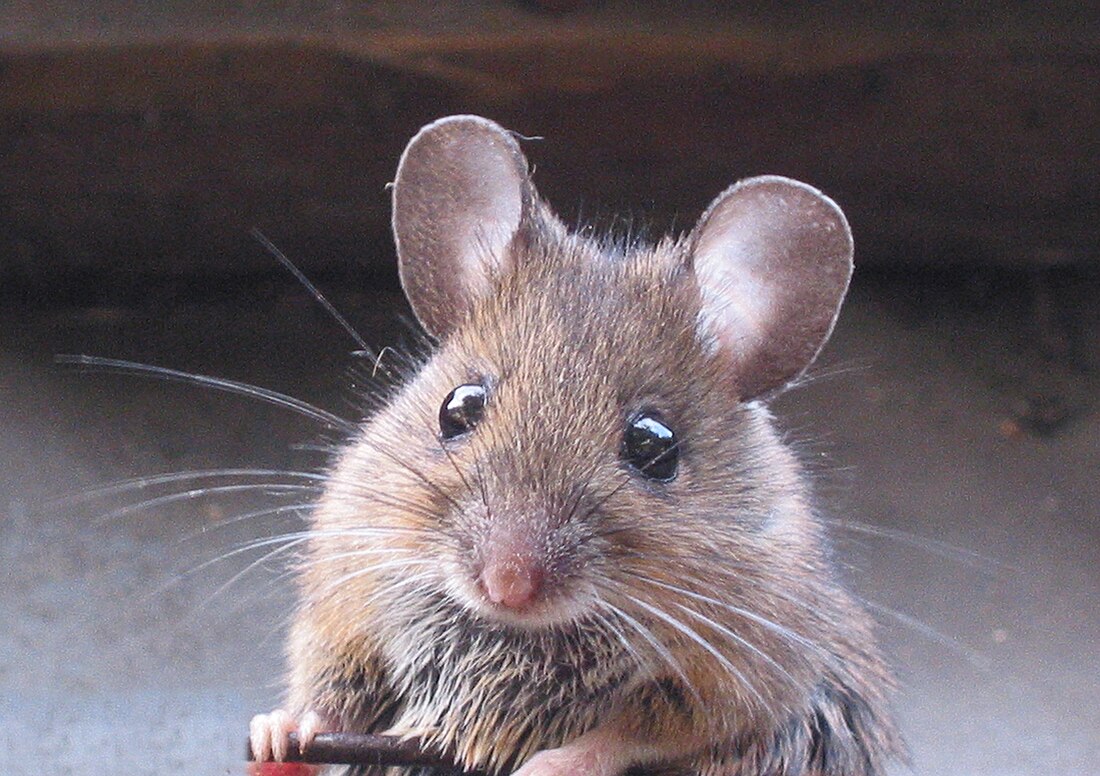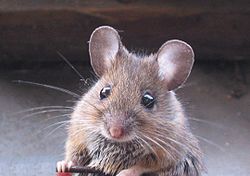Mouse
genus of mammals From Wikipedia, the free encyclopedia
Remove ads
A mouse (plural mice) is a small rodent, which is a kind of mammal. It has a pointed snout, small rounded ears, a body-length scaly tail and a high breeding rate. Most belong to the mus genus. The best known mouse species is the common house mouse (Mus musculus). Usually, house mice are brownish-gray. It is also a popular pet. In some places, certain kinds of field mice are also common. They are known to invade homes for food and occasionally shelter.
These small animals are often used in science experiments, or sometimes kept as pets.[1] Some mice carry diseases. In some places they damage crops. This causes some people to think of mice as vermin or pests.[2][3] Many other people think mice are cute and fun animals.
Mice are rodents, therefore they are related to squirrels, rats, and beavers. Mice eat weeds, seeds, berries, and more. They are eaten by owls, foxes, snakes, weasels, and cats, amongst others.
Remove ads
Types of mice
The word "mouse" should only be used for small murines, but does get used for other distantly-related small rodents. The murines are the largest subfamily of mammals. In fact, it is larger than almost all mammal orders.
House mouse
The common house mouse is thought of as a pest. They are found in the homes of humans.
Vole
Voles are not mice, they are in a different family of rodents.
Deer mouse
These are not mice either, or only distantly related. These mice live in forests. They can run and jump better than mice, and they get their common name from this.
The aggressive grasshopper mouse rarely eats other mice, but it does like grasshoppers and insects. It is also only a distant relative.
Remove ads
Mice in media
Anthropomorphism makes cartoon mice look and act more like people than like real mice. For example, the Disney characters Mickey and Minnie Mouse walk, talk, and act like people. Jerry, the mouse star of Tom and Jerry cartoons, is similarly humanized.
Mice used in research (or laboratory mouse)
Laboratory mice get used for experiments.
In 2024, media wrote about research where skin cells could possibly[4] be turned into an egg (that has not been fertilized). That kind of egg is called a zygote.
References
Wikiwand - on
Seamless Wikipedia browsing. On steroids.
Remove ads

